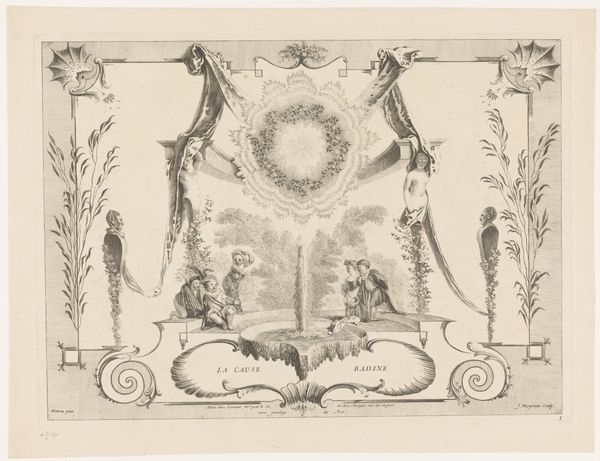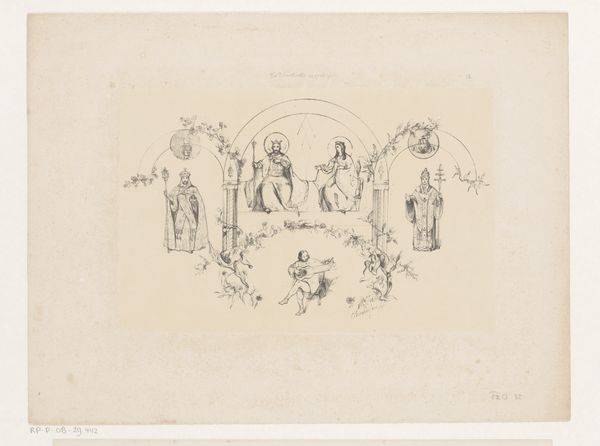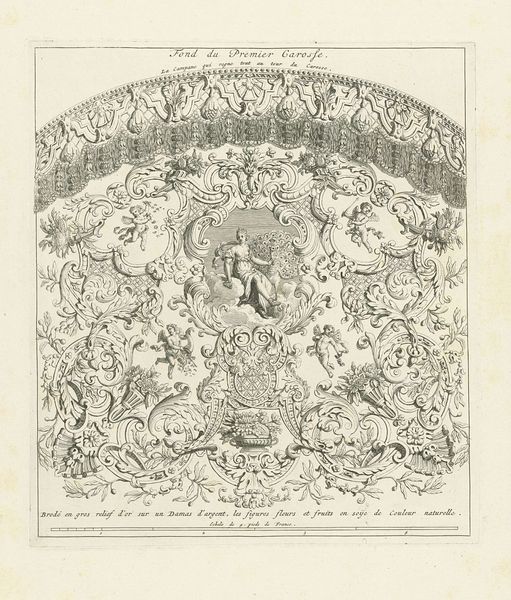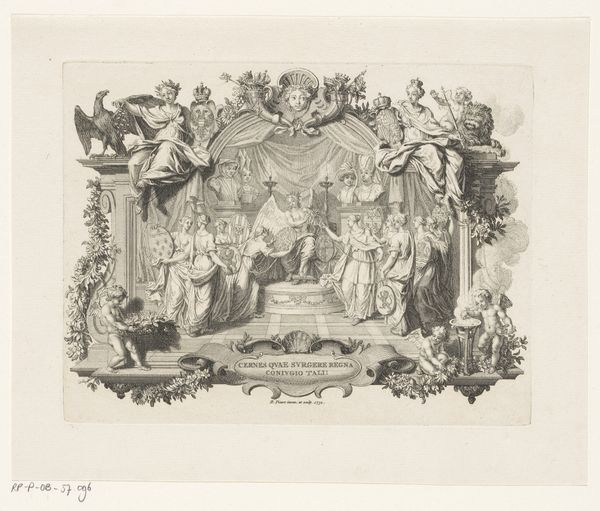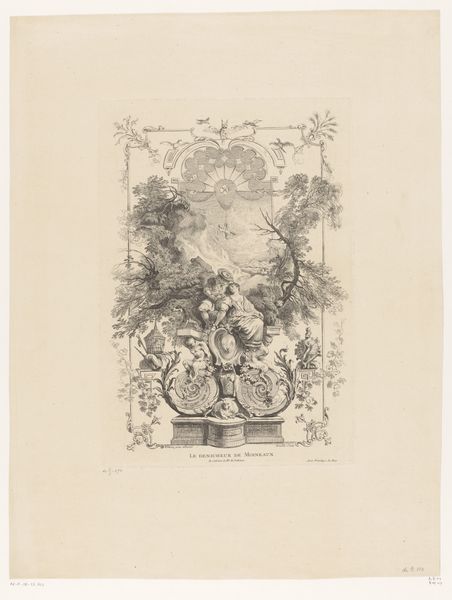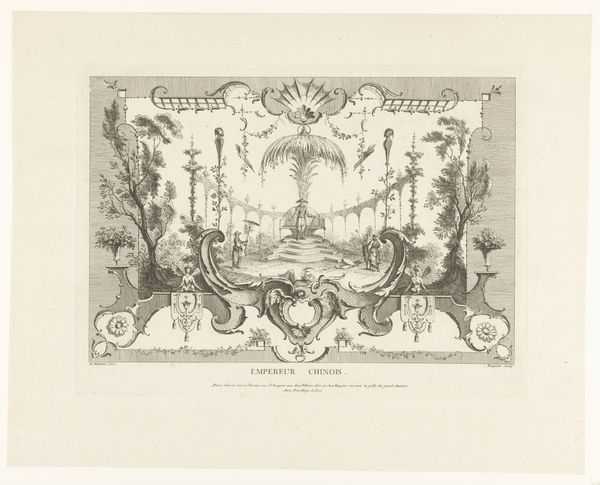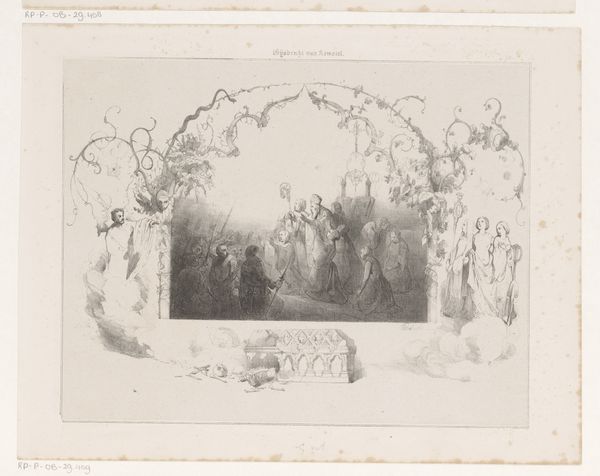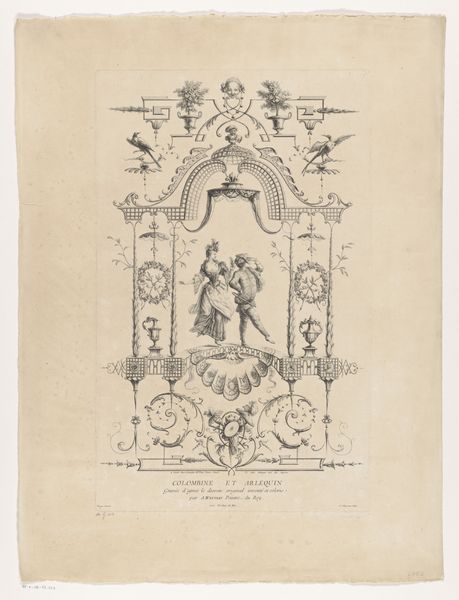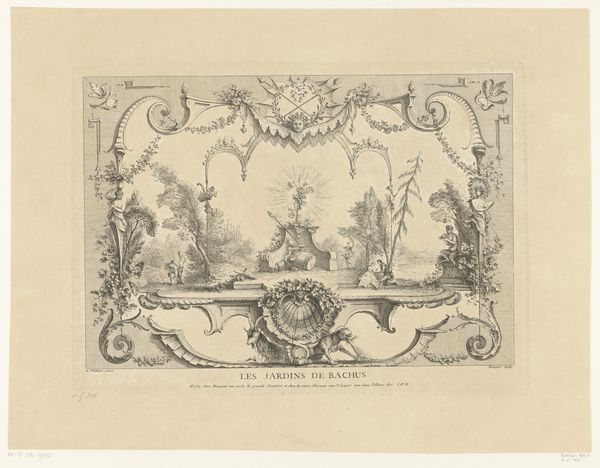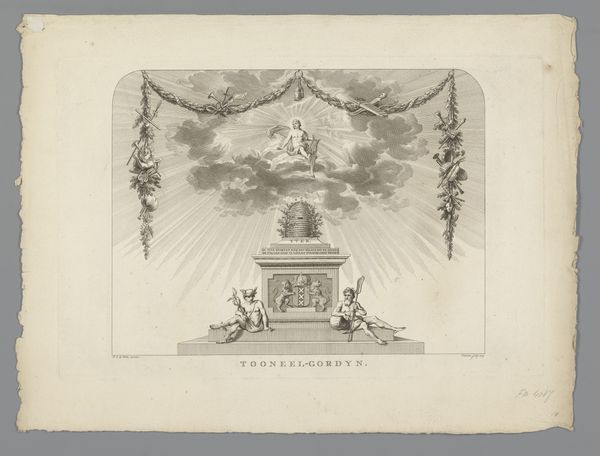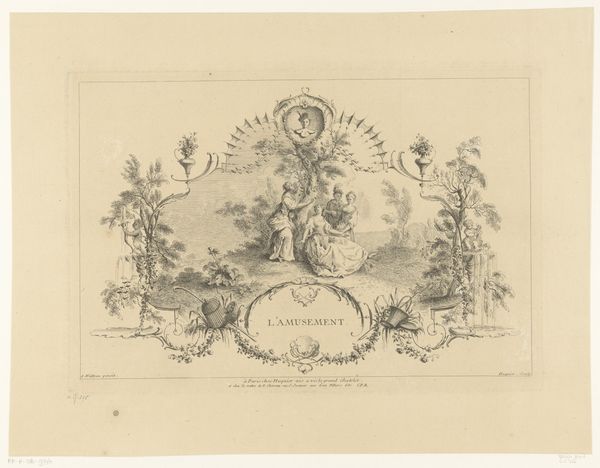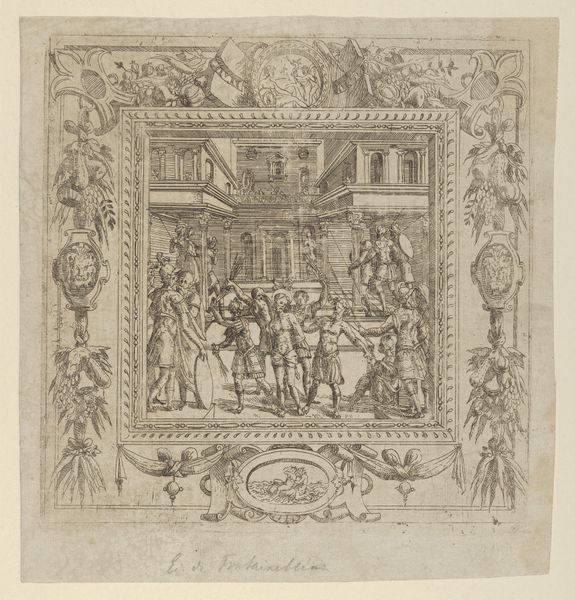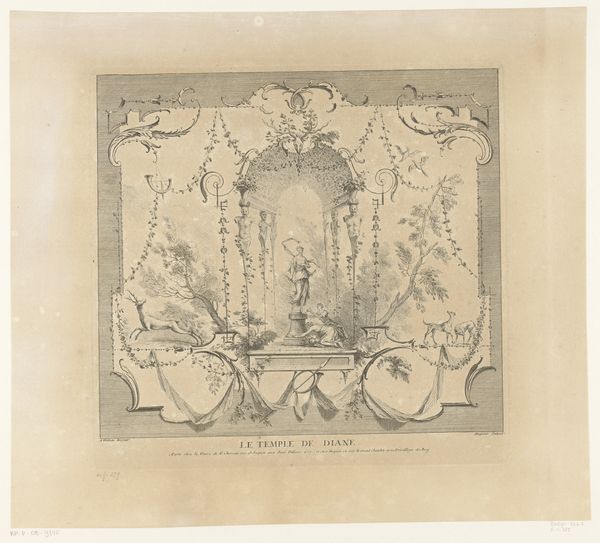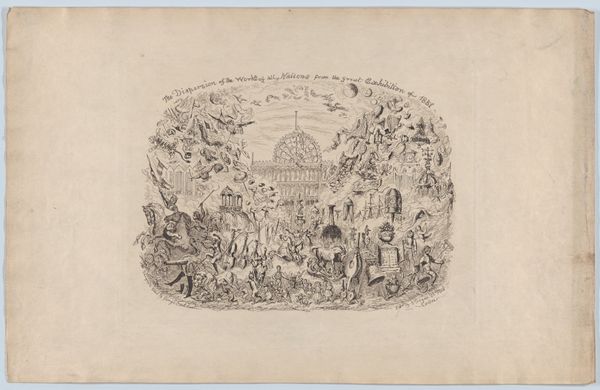
etching, engraving
#
baroque
#
etching
#
landscape
#
etching
#
history-painting
#
engraving
Dimensions: height 314 mm, width 325 mm
Copyright: Rijks Museum: Open Domain
Gabriel Huquier created this print called ‘Temple van Neptunus’ in the 18th century. It illustrates a temple dedicated to the Roman god Neptune. In the 1700s, Europe was in the throes of the Enlightenment, a period characterized by reason, individualism, and skepticism, which challenged traditional beliefs. This print, with its classical subject matter, embodies the Enlightenment’s fascination with classical antiquity, yet does so through the lens of French Rococo. You can see this in the elaborate ornamentation and playful arrangement of figures within the composition. Neptune, the god of the sea, embodies power, but here is situated within a serene, almost theatrical landscape. Consider how gender and power operate in this representation. Neptune, traditionally a symbol of masculine authority, is softened by the decorative, almost feminine quality of the Rococo style. The print invites us to reflect on the complex interplay between strength and beauty, authority and pleasure, and how these dynamics are visualized through art.
Comments
No comments
Be the first to comment and join the conversation on the ultimate creative platform.
